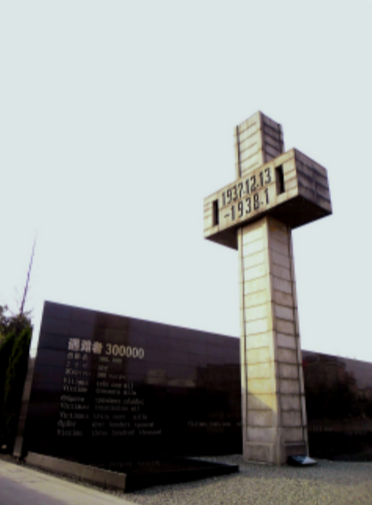Human Rights Under Siege: Power and Gang Violence Crisis in Haiti
- Guiselle Delgadillo
- Oct 22, 2025
- 4 min read
Guiselle Delgadillo

“Gangs kill two elite police officers” is the latest headline of the ongoing gang takeover that Haiti has been experiencing since July 2021. This crisis is not sudden; it is the result of repression and dictatorship that was initiated by François Duvalier and his son ‘Baby Doc’ during the U.S.-backed anti-communist era in the 1950s. Today, the United Nations and other international communities are failing to protect Haiti from the cycle of violence, hunger, and displacement.
Decades have passed, and this is more than just a criminal issue; it’s a humanitarian crisis concern because basic needs are no longer guaranteed for millions. As the world is progressing, Haiti is becoming the example of what happens when human rights are ignored for fear of criminal organizations. Without urgent improvement, Haitians will continue to be vulnerable and deprived. According to the UN’s press briefing from August 1, 2025, the crisis remains dangerous, and in just three months, around “1,520 people were killed and 609 were injured in armed violence.” Humanitarian aid to Haiti has not kept pace with these alarming numbers over the years. The corruption of Haiti’s government has allowed for political instability and for gangs to take over. During François Duvalier’s term, he used gangs as a source to secure monopolies during elections, and now criminal groups have overtaken the government.
On September 22, 2023, two prominent gangs, known as Viv Ansanm and G-9, formed alliances to operate in Port-au-Prince, the capital of Haiti, and the center of the takeover. As a force, they quickly became dangerous and began coordinating attacks on government buildings, hospitals, schools, and airports in Port-au-Prince and smaller cities. Destroying buildings that provide security and essential safety is inhumane, as it prevents Haitians from receiving care and puts them at risk for violence and fear.
Viv Ansanm and G-9 have outnumbered law enforcement and present themselves as leaders because the Haitian government failed to provide basic services. The gangs have convinced innocent Haitians that they’re under protection to “destabilize Haiti and quash actions aimed at restoring state control.” Therefore, the crisis has allowed criminal groups to step up and use kidnapping as a method to kill and intimidate. One of the most alarming tortures is the way gangs exploit children by using them in roles determined by their age, gender, and skills.
According to the United Nations Security Council, “girls usually act as spies to collect information from possible kidnapping victims or check on other gang movements.” These children are being weaponized by criminal groups to instill fear and desperation. No child should be forced to choose between survival and serving in a gang, yet that’s the reality many Haitian children are facing today. At their age, they should receive an education, dream about their future, and live free from the trauma of violence.
The normalization of using minors in a crisis is not only representative of human rights violations but also a failure of the international community to uphold the basic standards of human security. Gangs have also begun robbing first aid supplies from hospitals and pharmacies at the expense of nearly 240,000 people being displaced. As humanitarian responders continue to underfund Haiti, children and mothers face high rates of malnutrition, and the stolen life-saving aid is blocking them from receiving proper care.
What demands attention now is not just the extreme crisis Haiti is facing, but also the fact that since July 2021, the number of gangs has multiplied, and so has their violent control. Law enforcement, politicians, and the Haitian government are “supposed to protect Haitians,” but they’re also being killed or bribed with the fear of losing their lives. This takeover is not just a crisis; it is the collapse of Haiti’s political stability, and it should be a realization for the world. Advocates, international communities, and the United Nations need to continue the battle to save Haiti from the terror that is evolving in front of our eyes. This begins with providing support to the Haiti Humanitarian Fund, which is a part of the Regional Humanitarian Pooled Fund for Latin America and the Caribbean.
As of now, Haiti’s population is 11.9 million, and 6 million Haitians are still in need of basic human resources such as access to food, water, hygiene products, and safe housing. In 2025, only 3.9 million Haitians will be covered with assistance because the total funding requirement is $908.2 million, and only $79 million has been donated thus far. This funding gap of $803.4 million is a testament to the blind eye the international community is turning toward Haiti. Restoring justice cannot happen without both international aid and a significant shift in Haiti’s political landscape. As a result, the most vulnerable Haitians, particularly women and children, continue to suffer widespread malnutrition, poor sanitation, and violence as a consequence of the state’s failure.
Without filling the gap, the priority of protecting women and children will still be significantly low, and the escalating risks of gender-based violence, malnutrition, and poor sanitation will only worsen. Humanitarian actors will not be able to continue scaling protections without donations or advocacy from the international community to end the violence.
Remember that Haitians have been experiencing violence, trauma, and displacement for far too long. Their own hope is to establish a secure country, hold fair elections, and restore lives. But waiting for this takeover to end on its own will not result in the restoration of the state. It will only continue to feed the corruption and strengthen the power that gangs already hold.




Comments